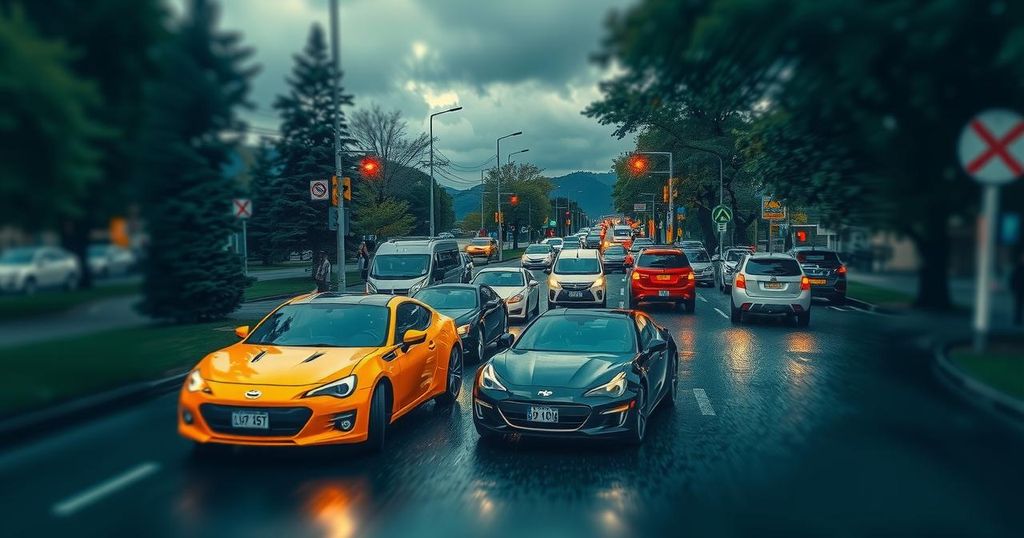Confronting Car Dependence: A $6.2 Trillion Opportunity for America
A new study by the Union of Concerned Scientists indicates that reducing car dependency can reduce transportation’s carbon footprint and save Americans $6.2 trillion by 2050. The report emphasizes the importance of diverse travel options, health cost savings from reduced emissions, and the need to shift away from entrenched car culture to achieve climate and equity goals.
A recent report from the Union of Concerned Scientists titled “Freedom to Move” posits that implementing robust policies to curtail Americans’ reliance on personal vehicles could yield not only significant climate benefits but also an estimated savings of $6.2 trillion for U.S. residents. The study contends that providing Americans with enhanced travel choices is essential for achieving climate goals, and that adopting innovative urban planning and investing in alternative transportation modes like walking, biking, and public transit could facilitate significant reductions in our carbon footprint. The report advocates for a 27 percent reduction in vehicle miles traveled (VMT) from 2035 to 2050, a target less ambitious than those set by current California and Washington standards, suggesting this change could eliminate the need for $201 billion in new energy infrastructure necessary for supporting a predominantly electric vehicle fleet. Furthermore, the transition would alleviate an estimated $128 billion in public health expenses linked to emissions and accidents, including costs associated with vehicular fatalities and injuries. While the findings highlight extraordinary potential savings—around $5.9 trillion—resulting from diminished expenditures on car payments, fuel, and insurance, even if households retain some vehicle use, the report underscores the need for systemic changes. Kevin Shen, the report’s lead author, emphasizes that tailored transit options can ensure equitable benefits across diverse communities. Ignoring the entrenched car culture of the past century, the barriers to reducing car dependency, such as historical lobbying efforts by automotive and fossil fuel industries that have prioritized car infrastructure over public transit spending, are significant challenges to overcome. In 2023 alone, these industries invested substantial resources, totaling $118 million, to influence policy in their favor, firmly embedding the perception of personal vehicle dependency within American society. In contrast, transitioning away from car reliance presents an opportunity to address the growing transportation inequities faced by non-drivers and economically disadvantaged communities, many of whom are burdened by high transportation costs. The report advocates for a reimagined notion of freedom—away from a sole focus on automobiles and toward a vision that incorporates varied travel options.
The article draws upon a comprehensive report released by the Union of Concerned Scientists, which argues against the prevailing car-dependent culture in America. The focus is on the potential economic and social advantages of implementing policies that reduce vehicle usage and encourage public transportation alternatives. It highlights the interconnectedness of transportation choices with climate change, public health, and economic equity, making a case for groundbreaking changes in urban planning and travel infrastructure.
In conclusion, the report from the Union of Concerned Scientists articulates a compelling argument for reducing reliance on personal vehicles in the U.S. This not only promises to mitigate climate change but also offers a monumental opportunity for economic savings, improved public health, and enhanced equity in transportation access. The proposed shifts challenge deeply ingrained norms and call for collective action to pave the way for a future where various modes of transport can coexist, fostering a more sustainable and equitable society.
Original Source: usa.streetsblog.org




Post Comment